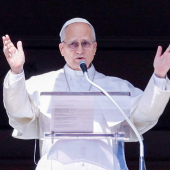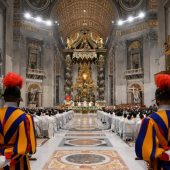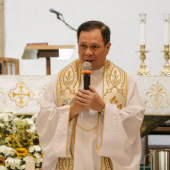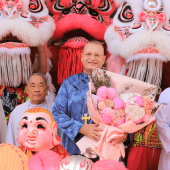New Diocese in China Welcomes Its First Shepherd
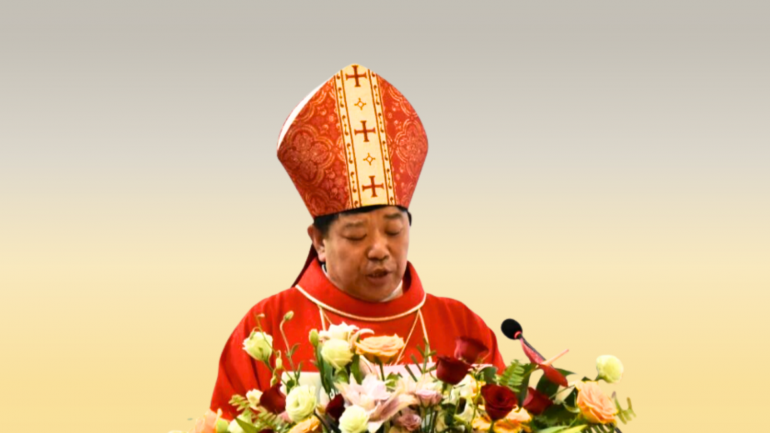
On September 10, Fr. Wang Zhengui was ordained bishop in Zhangjiakou, becoming the first bishop of the newly established Diocese of Zhangjiakou in China.
Earlier in July this year, Pope Leo XIV suppressed the Dioceses of Xuanhua and Xiwanzi (originally established by Pope Pius XII on April 11, 1946) and simultaneously erected the Diocese of Zhangjiakou. The new diocese is a suffragan of the Archdiocese of Beijing, with its cathedral located in Zhangjiakou.
The Holy See explained that the decision was made “to promote the pastoral care of the Lord’s flock and to attend more effectively to their spiritual good.” The appointment and episcopal ordination took place within the framework of the Provisional Agreement between the Holy See and the People’s Republic of China.
The new bishop’s consecration and installation mark the completion of this ecclesiastical reorganization.
Bishop Wang was born on November 19, 1962. From 1984 to 1988, he studied at Hebei Seminary, followed by two years of pastoral training in Qujiaozhuang Parish. He was ordained to the priesthood on May 24, 1990, and appointed pastor of the same parish in 1991. He later served in the Diocese of Xuanhua.
The new diocese covers an area of 36,357 square kilometers with a population of about 4,032,600, including approximately 85,000 Catholics and 89 priests. Its ecclesiastical territory corresponds to the civil jurisdiction of Zhangjiakou City, encompassing the districts of Qiaodong, Qiaoxi, Xuanhua, Xiahuayuan, Chongli, and Wanquan, as well as the counties of Chicheng, Huailai, Zhuolu, Yu, Yangyuan, Huai’an, Shangyi, Zhangbei, Guyuan, and Kangbao.
Radio Veritas Asia (RVA), a media platform of the Catholic Church, aims to share Christ. RVA started in 1969 as a continental Catholic radio station to serve Asian countries in their respective local language, thus earning the tag “the Voice of Asian Christianity.” Responding to the emerging context, RVA embraced media platforms to connect with the global Asian audience via its 21 language websites and various social media platforms.









